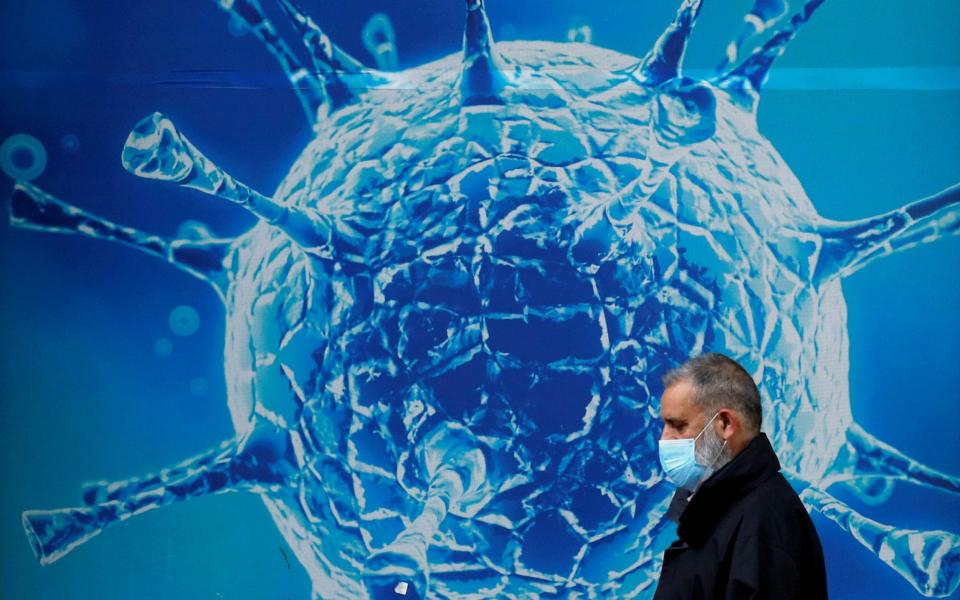Questor: Illumina cracked the Covid code and tracks the variants – but that’s not why it’s a buy

Four days. That is how long it took for the coronavirus’s genetic code to be read and turned into a working vaccine.
The virus’s secrets were unlocked on Jan 10 last year by a MiSeq gene sequencing machine made by the American company Illumina. Moderna received its genetic code electronically and that company’s computerised systems came up with the structure of its “mRNA” Covid-19 vaccine two days later.*
BioNTech of Germany devised a similar one; both are in use, alongside others, with the results we see around us today. More recently gene sequencing has kept us aware of the virus’s variants.
We have already covered BioNTech (whose shares reached a record high this week) and Moderna so today we turn our attention to Illumina.
Straight away we see a striking parallel with BioNTech: while their respective parts in the fight against Covid catch the public’s eye, the true potential in each firm lies elsewhere, in the wider application of the science used to develop the vaccines to other areas of medicine, in particular the fight against an even tougher and more entrenched enemy: cancer.
“The most exciting opportunity for Illumina’s technology is for use in diagnosing cancer,” said Julia Angeles, co-manager of the Baillie Gifford Health Innovation fund. The fund has a stake in the company and Baillie Gifford is Illumina’s largest shareholder.
“Cancer is a disease of the genome in the sense that it stems from DNA mutations and DNA ‘methylations’, a mechanism that controls when and where different sets of genomic instructions are carried out in the body,” she added.
“If you could diagnose cancer by spotting these mutations and methylation patterns in DNA found in patients’ blood, it would be revolutionary. First, you could detect the majority of cancers, especially those – of which there are many – that have no other screening technique. Second, you could diagnose the cancer much earlier, because currently it’s normally detected only when the patient has symptoms and goes to see a doctor.
“Catching cancer early is good for the patient of course but it’s also good for society because it costs less to treat at the earlier stages.”
Sign up to our Business Briefing newsletter for a snapshot of the day's biggest business stories
Read Questor’s rules of investment before you follow our tips
Ms Angeles said such genetic screening for cancers could eventually be offered to everyone, regardless of symptoms, once they reached a certain age. “Signs of cancer would be picked up by sequencing the DNA in the blood samples, so the implications of this type of mass screening for the sale of Illumina’s sequencing machines and the consumables needed are obvious,” she added.
The company that has the technology for isolating the DNA in blood samples is called Grail. Grail used to be part of Illumina and the latter is now trying to reacquire it. This would give it control of the entire diagnostic process.
“Owning Grail again would bring an amazing opportunity but if the deal is blocked Illumina’s technology would still be needed for the sequencing so it stands to benefit either way from Grail’s breakthrough,” Ms Angeles said.
She said screening of the entire genome of everyone in the population could one day be on the cards, although there would be challenges to overcome with privacy and public acceptance.
Baillie Gifford said Illumina’s sequencing machines were estimated to control 90pc of the American market and to compile 80pc of the genomic information discovered in the world in a given year. “The company is sometimes called the ‘Google of the genomics business’, not just because it commands its market but thanks to its products’ ability to ‘search’ our complete genetic make-up,” it added.
The Scottish fund manager recently reminded its investors of its impressions of Illumina when it first met the firm’s management almost 10 years ago.
“We should be very content with the culture of this company. It seems clear that the leadership sees this as a transformational enterprise and that their commitment runs deeper than making money,” it said.
“[We were] left with a strong belief that this should be an inspirational and extraordinary business and that it has management that think about it in these terms.”
Questor says: buy
Ticker: Nasdaq: ILMN
Share price at close: $386.36
*This paragraph and the key facts table have been amended in minor respects after publication
Read the latest Questor column on telegraph.co.uk every Sunday, Tuesday, Wednesday, Thursday and Friday from 5am.
